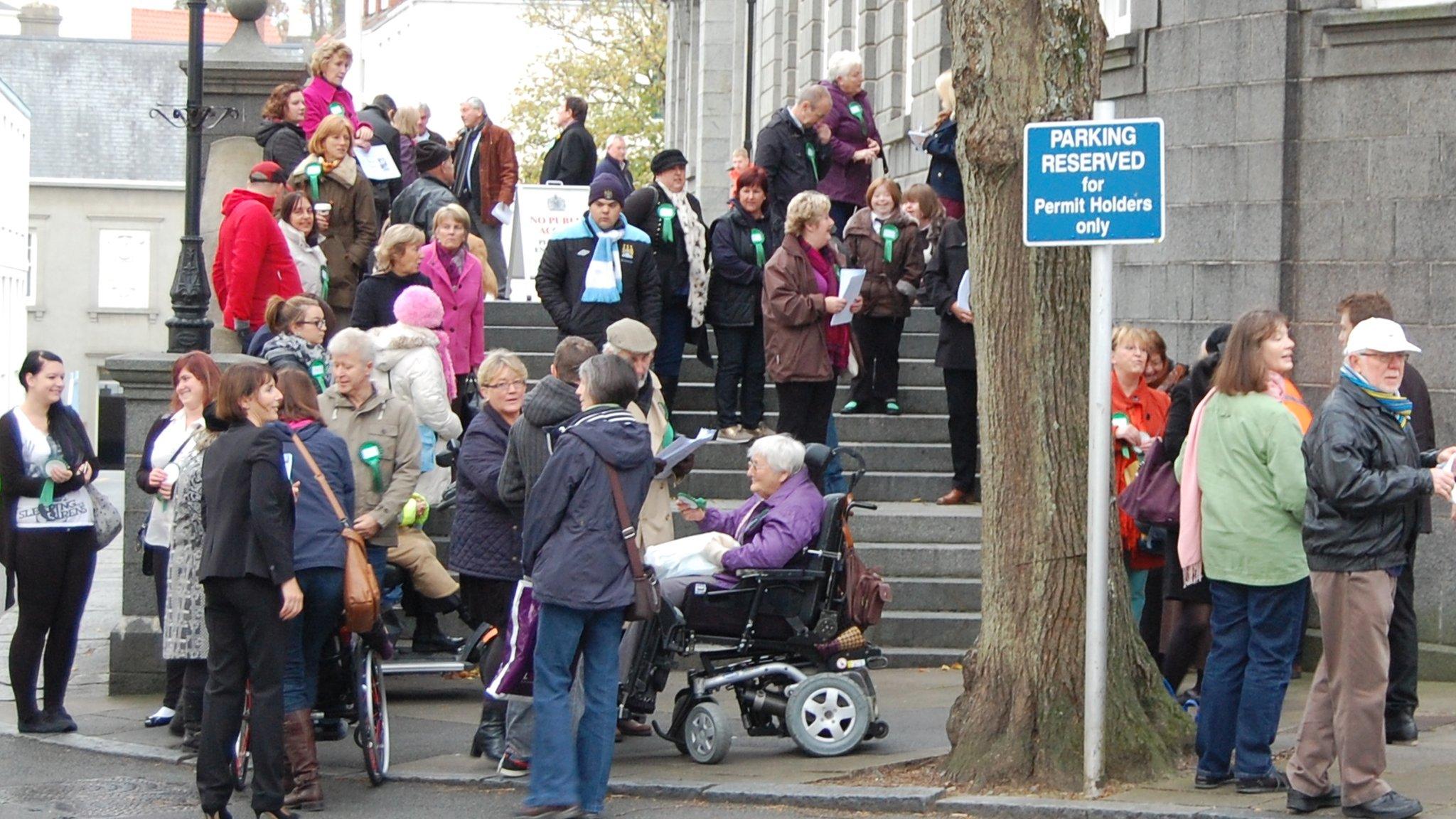Guernsey States agrees outline for anti-discrimination laws
- Published
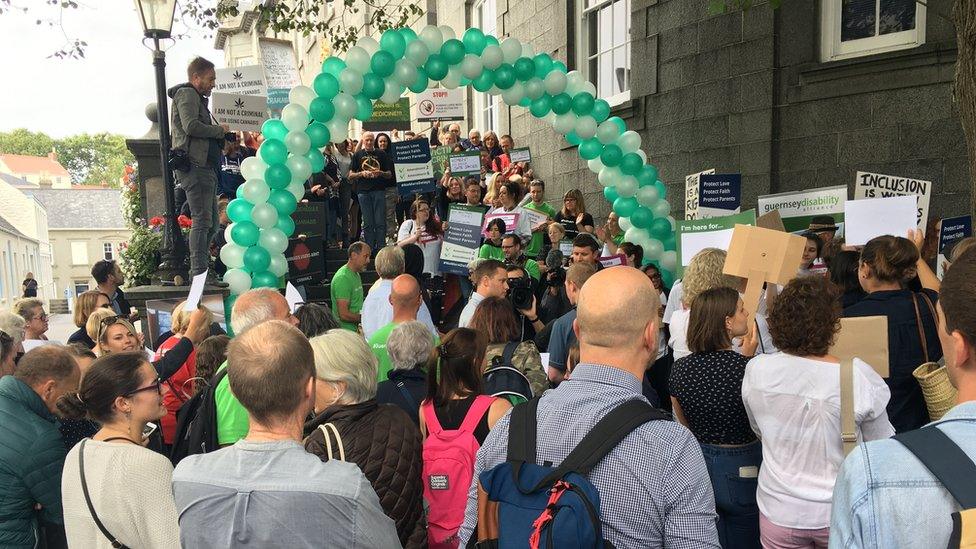
Hundreds of islanders turned out on the first day of the States meeting to welcome deputies on their way into the Royal Court building
Guernsey is set to ban race, disability and sexuality discrimination, after the States approved a policy letter.
Introduction of the anti-discrimination law will be in two phases, first focusing on race, disability, sexuality, religion and carer status.
The second phase will cover age-based discrimination and the "modernisation" of existing sex discrimination law.
Phase one is expected to come into force in 2022 and the second in 2024, the policy letter said.
The birth registration process will also be updated so it can give "equal treatment to diverse family types" and remove the concept of illegitimacy.
States members also agreed the "expected approach" of gender-neutral drafting for all documentation should become a binding policy.
For phase two, the right to "equal pay for work of equal value" for all, the modernisation of existing sex-based discrimination law and "multiple and intersectional" forms of discrimination are to be considered.
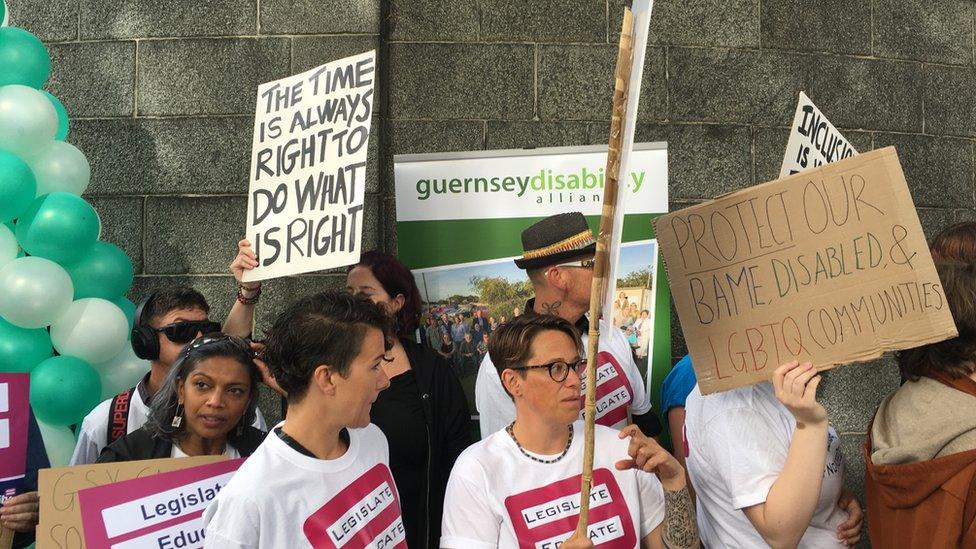
Members of disability and equality campaign groups joined together to show their support for new anti-discrimination laws

Attempts to introduce anti-discrimination legislation have been ongoing since 2013
Funding for the Employment and Equal Opportunities Service and the Employment and Discrimination Tribunal will increase, estimated at £200,000 in 2021, £305,000 in 2022 and £325,000 from 2023.
The Committee for Employment and Social Security will also receive annual funding of £45,000 to raise "awareness and change attitudes in relation to prejudice and discrimination in the community".
It also grants £525,000 for further initiatives:
£90,000 to develop the Employment Relations Service and the Employment and Discrimination Tribunal
£40,000 for a survey on prejudice and discrimination, plus developing an approach to address issues identified
£395,000 to fund project set-up costs and awareness campaigns for the legislative changes between 2021 and 2023
In summing up, Deputy Michelle Le Clerc, President of Employment and Social Security, said States members had to ensure the necessary resources continued to be in place for the work to happen.
The agreed proposals will be drafted in law and put before the States for final assent.
- Published3 March 2020
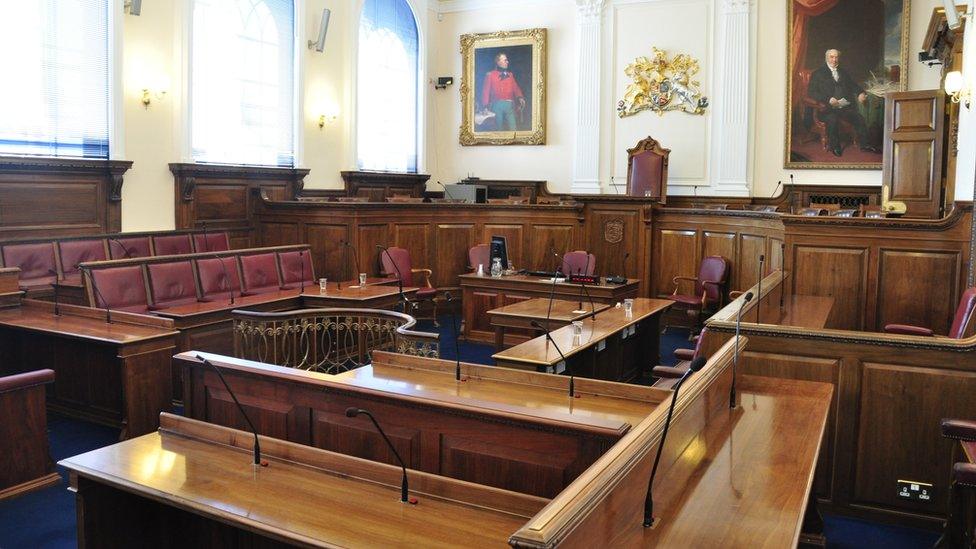
- Published17 October 2015
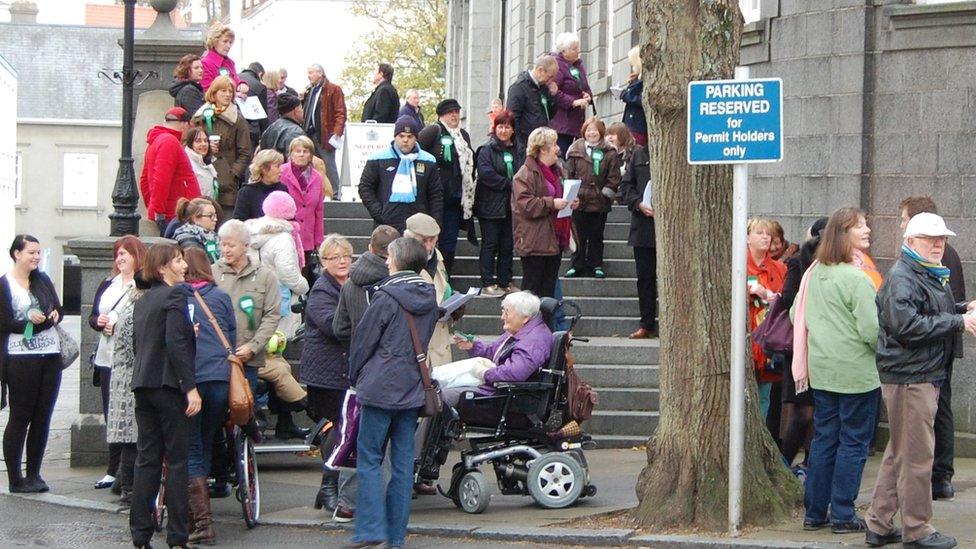
- Published2 September 2014

- Published27 November 2013
